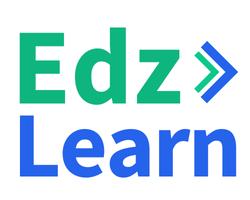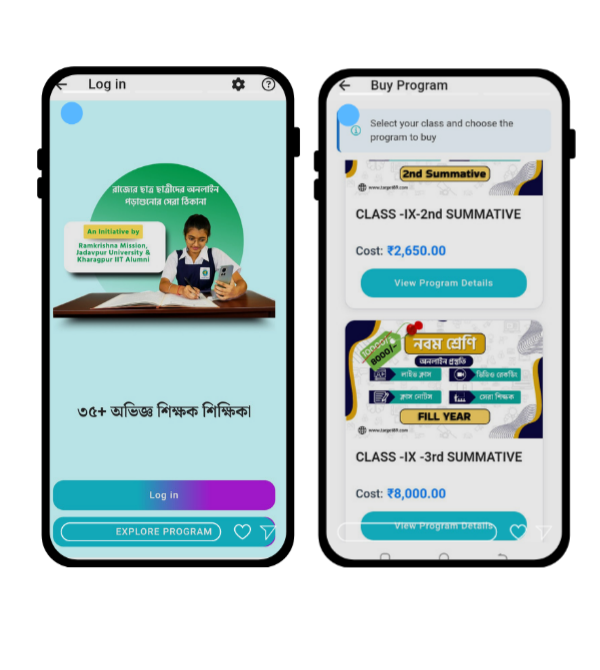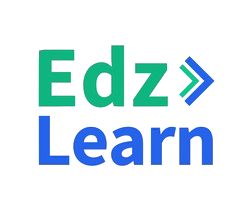A Learning Management System (LMS) is a software application designed to facilitate the management, delivery, and assessment of educational courses and training programs within an organization. In corporate settings, LMS platforms have become integral to training strategies, offering a centralized solution for employee development. The rise of LMS in corporate training is driven by the increasing need for scalable, flexible, and efficient training solutions that can meet the demands of a modern, diverse workforce.
The primary function of an LMS is to serve as a repository for training content, including videos, documents, quizzes, and interactive modules. This centralized storage allows organizations to maintain consistent training materials across different departments and locations, ensuring that all employees receive the same information. Furthermore, an LMS enables organizations to streamline the delivery of training programs, making them accessible to employees at any time and from anywhere.
The versatility of LMS platforms is one of their key advantages. They can be customized to suit the specific needs of an organization, whether it’s compliance training, onboarding, skill development, or leadership training. LMS platforms often come with features such as progress tracking, certification, and analytics, which allow organizations to monitor employee performance and engagement in real-time.
In addition to enhancing the accessibility and consistency of training programs, LMS platforms also contribute to a more personalized learning experience. Employees can learn at their own pace, revisit materials as needed, and access additional resources to deepen their understanding. This flexibility is particularly important in today’s fast-paced business environment, where employees must balance training with other responsibilities.
As organizations continue to evolve, the role of LMS in corporate training is becoming increasingly critical. The integration of LMS platforms with other business tools, such as Human Resources Information Systems (HRIS) and Customer Relationship Management (CRM) systems, further enhances their value by providing a holistic approach to employee development.
Key Benefits of Implementing an LMS for Corporate Training
Implementing a Learning Management System (LMS) in corporate training brings numerous benefits that significantly enhance the efficiency and effectiveness of employee development programs. One of the foremost benefits is the ability to provide consistent and standardized training across an entire organization. With an LMS, companies can ensure that all employees receive the same quality of training, which is crucial for maintaining compliance, brand standards, and operational excellence.
Another key benefit of LMS is the flexibility it offers. Unlike traditional training methods that require employees to attend in-person sessions at specific times, an LMS allows employees to access training materials at their convenience. This self-paced learning approach is especially beneficial for organizations with remote or geographically dispersed teams, as it enables all employees to participate in training regardless of their location.
Cost-effectiveness is another significant advantage of using an LMS. Traditional training methods often involve high costs, including travel, accommodation, and venue expenses. In contrast, an LMS eliminates the need for these expenses by delivering training content online. Additionally, the ability to update and reuse content means that organizations can reduce the costs associated with creating new training materials.
An LMS also enhances the engagement and retention of training materials through the use of multimedia content and interactive elements. By incorporating videos, quizzes, simulations, and gamified content, an LMS can cater to different learning styles and keep employees motivated and engaged in their learning journey. Moreover, the progress tracking and reporting features of an LMS allow organizations to monitor employee performance and identify areas where additional training may be needed.
Scalability is another critical benefit of LMS platforms. As organizations grow, their training needs also expand. An LMS can easily accommodate this growth by adding new users, courses, and modules without the need for significant additional resources. This scalability makes LMS an ideal solution for organizations of all sizes, from small businesses to large enterprises.
Enhancing Employee Engagement and Retention through LMS
A Learning Management System (LMS) plays a pivotal role in enhancing employee engagement and retention, two critical factors that contribute to the overall success of corporate training programs. Employee engagement in training programs is often a challenge, especially when traditional methods such as lectures or printed materials fail to capture attention. An LMS addresses this challenge by offering a variety of interactive and multimedia content that keeps employees actively involved in their learning journey.
One of the key ways an LMS enhances engagement is through personalized learning experiences. By allowing employees to learn at their own pace and choose content that aligns with their interests and career goals, an LMS fosters a sense of ownership over the learning process. This autonomy not only increases motivation but also leads to better retention of the material. Additionally, many LMS platforms incorporate gamification elements, such as badges, leaderboards, and points, which add a competitive and fun aspect to learning, further boosting engagement.
Another important aspect of employee engagement is the ability to receive immediate feedback. LMS platforms typically include quizzes, assessments, and interactive exercises that provide instant results. This immediate feedback helps employees understand their strengths and areas for improvement, making the learning process more dynamic and effective. Moreover, the ability to track progress and achieve milestones within the LMS encourages continuous participation and persistence in training programs.
Retention of training materials is another critical outcome of an engaging LMS experience. Through the use of varied content formats—such as videos, infographics, and case studies—LMS platforms cater to different learning styles, making it easier for employees to absorb and retain information. Additionally, the option to revisit and review content as needed ensures that employees can reinforce their learning over time, leading to better long-term retention of key concepts.
The social learning features of an LMS also contribute to enhanced engagement and retention. Discussion forums, peer reviews, and collaborative projects within the LMS platform enable employees to learn from one another and share insights, creating a more interactive and connected learning environment.
Cost-Effectiveness and Scalability: The Economic Benefits of LMS
The implementation of a Learning Management System (LMS) in corporate training offers significant economic benefits, primarily through cost-effectiveness and scalability. One of the most apparent financial advantages of using an LMS is the reduction in training-related expenses. Traditional training methods, such as in-person workshops and seminars, often involve substantial costs, including travel, accommodation, venue hire, and printed materials. By contrast, an LMS delivers training content online, eliminating the need for these expenses and making the entire training process more affordable.
The cost savings associated with an LMS extend beyond the reduction of direct expenses. The ability to create, update, and distribute training materials digitally means that organizations can minimize the costs related to developing and revising training content. For example, once a course is created within an LMS, it can be reused multiple times without incurring additional costs. Furthermore, updates to the content can be made quickly and easily, ensuring that employees always have access to the most current information without the need for reprinting or redistributing materials.
Scalability is another critical economic benefit of LMS platforms. As organizations grow, their training needs also expand, often requiring additional resources, instructors, and materials. An LMS can accommodate this growth with minimal additional investment. New users, courses, and modules can be added to the system without significant increases in cost or infrastructure. This scalability makes LMS platforms particularly advantageous for organizations that anticipate rapid growth or have a large, geographically dispersed workforce.
In addition to reducing costs and enabling scalability, an LMS can also enhance the return on investment (ROI) of training programs. The analytics and reporting features of an LMS provide organizations with detailed insights into employee performance, engagement, and progress. These data-driven insights enable organizations to make informed decisions about future training investments and optimize their training strategies for maximum impact. By focusing resources on the most effective training programs and identifying areas where improvements are needed, organizations can achieve a higher ROI on their training initiatives.
Personalized Learning Paths: How LMS Adapts to Employee Needs
One of the most powerful features of a Learning Management System (LMS) is its ability to offer personalized learning paths, which adapt to the unique needs and preferences of each employee. Personalized learning is essential in today’s diverse workforce, where employees have varying levels of experience, knowledge, and learning styles. An LMS facilitates personalized learning by allowing organizations to tailor training content and delivery methods to individual employees, thereby enhancing the effectiveness of corporate training programs.
Personalized learning paths within an LMS are often created based on a combination of factors, including an employee’s role, previous training history, and career development goals. For instance, new hires may follow an onboarding path that introduces them to company policies, culture, and essential skills, while more experienced employees might engage in advanced training modules that focus on leadership development or specialized skills. By aligning the training content with the employee’s specific needs, an LMS ensures that each employee receives the most relevant and impactful training.
Another way LMS platforms support personalized learning is through adaptive learning technology. Adaptive learning systems use algorithms to assess an employee’s progress and performance, adjusting the content and difficulty level accordingly. This approach allows employees to move through training materials at their own pace, spending more time on areas where they need improvement and skipping content they have already mastered. This dynamic adjustment not only makes learning more efficient but also prevents employees from feeling overwhelmed or disengaged by content that is too difficult or too easy.
Personalized learning paths also cater to different learning styles by offering a variety of content formats, such as videos, readings, quizzes, and interactive simulations. Employees can choose the format that best suits their learning preferences, leading to a more engaging and effective learning experience. Additionally, the ability to access training materials on-demand allows employees to fit learning into their schedules, further enhancing the personalization of the learning experience.
LMS platforms also offer opportunities for personalized feedback and support. Through features like quizzes, assessments, and instructor interactions, employees receive tailored feedback that helps them identify areas for improvement and track their progress. This personalized support encourages continuous learning and development, which is critical for long-term career growth and success.
Challenges in Integrating LMS into Existing Corporate Structures
While the benefits of implementing a Learning Management System (LMS) in corporate training are substantial, integrating an LMS into existing corporate structures presents several challenges. One significant hurdle is the alignment of the LMS with the organization’s existing processes and workflows. Many companies have established training methods, and transitioning to a digital platform can be disruptive. Resistance to change among employees and management can further complicate the integration process.
Another challenge is the technical complexity involved in integrating the LMS with other existing systems, such as Human Resources Information Systems (HRIS) and Customer Relationship Management (CRM) platforms. This integration is crucial for a seamless flow of data and for ensuring that training programs are aligned with business objectives. However, the technical requirements, including data migration and system compatibility, can be daunting and may require specialized IT support.
Customization is another challenge, as organizations often need to tailor the LMS to meet specific training needs, which can be time-consuming and costly. Additionally, ensuring that the LMS complies with industry-specific regulations and data protection laws is essential but can add another layer of complexity.
Finally, there is the challenge of maintaining employee engagement during the transition period. If the LMS is not user-friendly or does not offer a seamless learning experience, employees may be reluctant to embrace the new system, leading to lower engagement and reduced training effectiveness.
Ensuring Data Security and Compliance in LMS Platforms
Data security and compliance are critical concerns when implementing a Learning Management System (LMS) in corporate training. Given that LMS platforms store and manage sensitive employee data, including personal information, performance records, and training progress, organizations must ensure that this data is protected against unauthorized access, breaches, and other security threats.
One of the primary challenges in ensuring data security is choosing an LMS that complies with relevant data protection regulations, such as the General Data Protection Regulation (GDPR) in Europe or the California Consumer Privacy Act (CCPA) in the United States. Compliance with these regulations requires that the LMS has robust data encryption, secure authentication processes, and the ability to manage and protect personal data according to legal standards.
Additionally, organizations must implement strong internal policies and procedures to safeguard data within the LMS. This includes regular security audits, employee training on data protection, and the establishment of clear protocols for handling and accessing sensitive information. Moreover, the LMS should provide features like role-based access controls, which limit access to data based on an employee’s role within the organization, thereby reducing the risk of unauthorized access.
Another aspect of ensuring data security and compliance is staying updated with the latest security patches and updates from the LMS provider. Regularly updating the system helps protect against vulnerabilities and emerging threats. Finally, organizations should have a clear response plan in place in case of a data breach, including steps for mitigating the impact and communicating with affected parties.
Overcoming Resistance to LMS Adoption Among Employees
Resistance to adopting a new Learning Management System (LMS) is a common challenge in corporate training initiatives. Employees may be reluctant to embrace the LMS due to a variety of factors, including unfamiliarity with the technology, concerns about the added workload, or skepticism about the benefits of the new system. Overcoming this resistance requires a strategic approach that addresses these concerns and encourages employee buy-in.
One effective strategy is to involve employees in the LMS selection and implementation process. By soliciting feedback and input from employees early on, organizations can choose a platform that meets their needs and preferences, making them more likely to accept and use the LMS. Additionally, clear communication about the benefits of the LMS, such as improved learning experiences, career development opportunities, and greater flexibility, can help alleviate concerns and build enthusiasm.
Providing comprehensive training and support is also crucial in overcoming resistance. Employees need to feel confident in their ability to navigate and use the LMS effectively. Offering hands-on training sessions, tutorials, and ongoing support can ease the transition and help employees become comfortable with the new system. Furthermore, recognizing and rewarding employees who actively engage with the LMS can create positive reinforcement and encourage wider adoption.
Leadership support is another critical factor. When management demonstrates a commitment to the LMS and actively participates in the training process, it sets a positive example for the rest of the organization and reinforces the importance of the new system.
Measuring the ROI of LMS in Corporate Training Programs
Measuring the return on investment (ROI) of a Learning Management System (LMS) in corporate training programs is essential for determining the effectiveness and value of the platform. ROI measurement involves assessing both the tangible and intangible benefits of the LMS against the costs of implementation, maintenance, and operation.
One of the key metrics for measuring ROI is the improvement in employee performance and productivity. By tracking metrics such as completion rates, assessment scores, and post-training performance, organizations can gauge how well the LMS is contributing to skill development and overall job performance. Additionally, the ability to reduce training costs, such as travel expenses and time away from work, contributes to a positive ROI.
Another important aspect of ROI measurement is employee engagement and satisfaction with the training programs. Surveys, feedback forms, and usage analytics can provide insights into how employees perceive the LMS and whether it is meeting their learning needs. High levels of engagement and satisfaction often correlate with better training outcomes and, consequently, a higher ROI.
The scalability and adaptability of the LMS also play a role in ROI. A system that can easily accommodate growth and changing training needs without significant additional costs offers better long-term value. Finally, the data analytics and reporting capabilities of an LMS allow organizations to continuously monitor and optimize their training programs, ensuring that resources are allocated effectively and that the LMS remains aligned with business goals.
The Future of LMS in Corporate Training: Trends and Innovations
The future of Learning Management Systems (LMS) in corporate training is shaped by emerging trends and innovations that are redefining how organizations approach employee development. One significant trend is the integration of artificial intelligence (AI) and machine learning into LMS platforms. These technologies enable the creation of more personalized learning experiences by analyzing employee behavior, preferences, and performance to recommend tailored content and learning paths.
Another emerging trend is the increased use of mobile learning, as more employees seek the flexibility to access training materials on their smartphones and tablets. Mobile-optimized LMS platforms allow employees to learn on the go, making training more accessible and convenient. Additionally, the rise of microlearning, which delivers training in short, focused segments, is gaining popularity as it aligns with the need for quick, on-demand learning that fits into busy work schedules.
The incorporation of virtual and augmented reality (VR/AR) into LMS platforms is also transforming corporate training. These technologies provide immersive learning experiences that can simulate real-world scenarios, making training more engaging and effective. For example, VR can be used for safety training, allowing employees to practice handling hazardous situations in a controlled environment.
Social learning features, such as discussion forums, peer reviews, and collaborative projects, are becoming more prevalent in LMS platforms. These features foster a sense of community and enable employees to learn from one another, enhancing the overall learning experience.
As LMS platforms continue to evolve, they are likely to become even more integrated with other business systems, offering a seamless and comprehensive approach to employee development. This ongoing innovation will ensure that LMS platforms remain at the forefront of corporate training strategies.
Conclusion
Learning Management Systems (LMS) play a pivotal role in modern corporate training, offering numerous benefits such as cost-effectiveness, scalability, and personalized learning experiences. However, the successful implementation of an LMS requires overcoming challenges such as integration with existing systems, ensuring data security, and addressing employee resistance. By effectively measuring the return on investment and staying ahead of emerging trends like AI, mobile learning, and VR/AR, organizations can maximize the impact of their LMS platforms. As the corporate training landscape continues to evolve, LMS platforms will remain an essential tool for fostering employee development and organizational growth.















